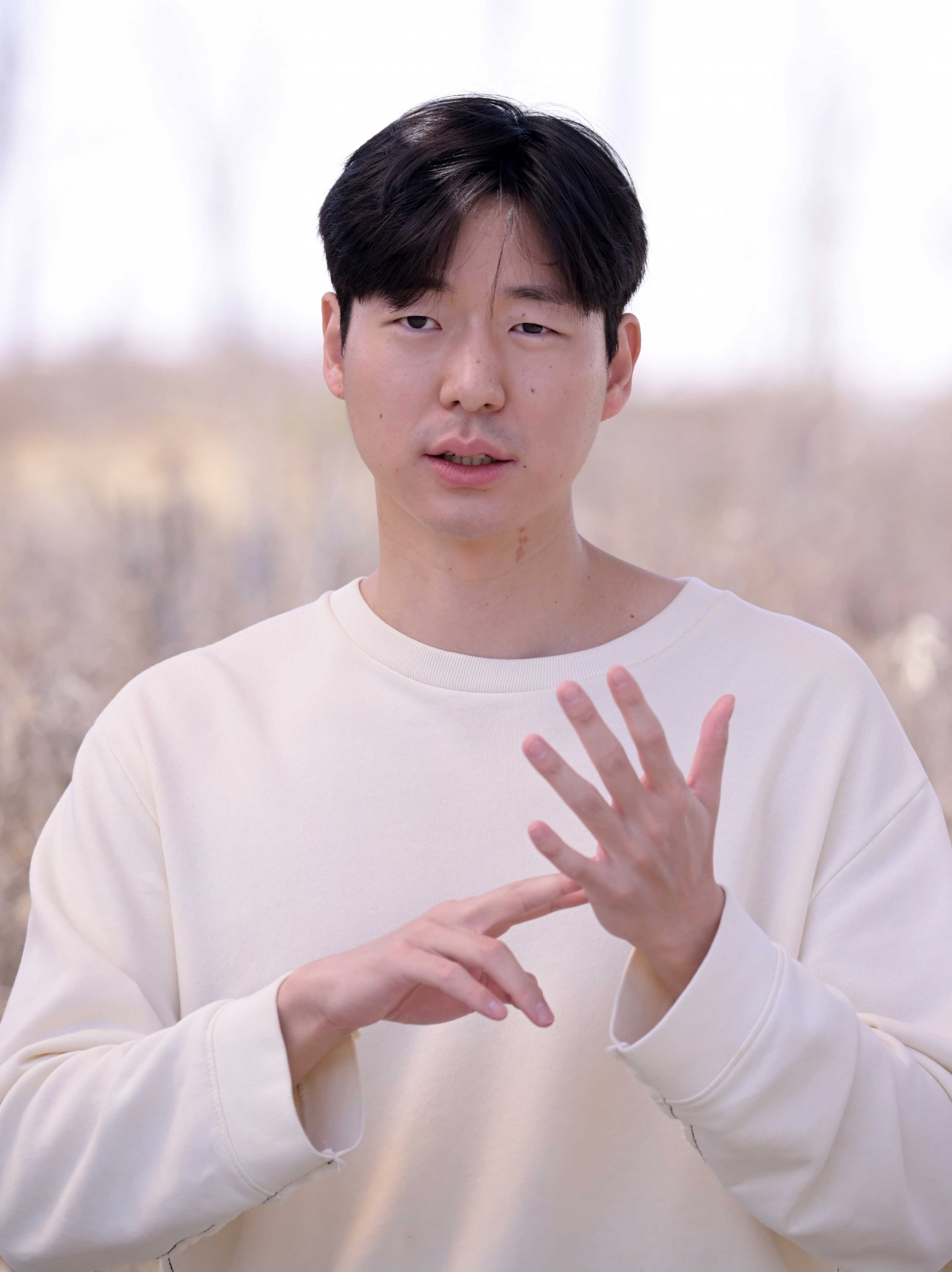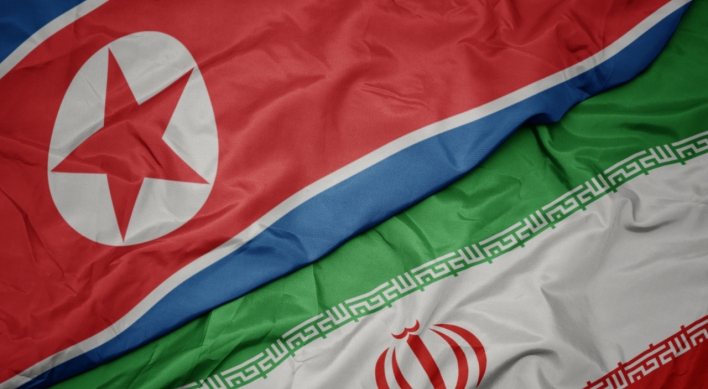[Herald Interview] Winds of change in Korea's labor movement
Fledgling union reflects transitional phase in labor movement scene, with growing calls for change from younger workers
By Lee JaeeunPublished : April 30, 2023 - 16:37

Yoo Jun-hwan, 31, never thought that he would be leading a labor union until just two years ago. The research engineer who had studied in the US was awarded a smaller-than-expected annual bonus from his company, LG Electronics, in early 2021. However, the company had marked a record high operating profit in the previous year at nearly 3.2 trillion won ($2.3 billion).
In quite an unusual move at a Korean company, Yoo asked management why he was getting a bonus far lower than those given out by the company’s competitors. The company told him that it did not have specific criteria on how much was given to employees as bonuses, and that the company’s profits were lower than that of its competitors.
"I was enraged. So I suggested to some colleagues online that we form a union ... and that's how it all started."
The union he first formed, the LG Electronics People-Centered Office Workers' Union, later merged with unionized office workers of Seoul Metro, operator of the Seoul subway. The newly merged union was named Saerogochim, or the Refresh Labor Council. The word “saerogochim” refers to the refresh function on computer programs or apps.
As of April, the union has more than 8,000 members across 12 firms ranging from manufacturing and state-owned companies to large conglomerates. Most members are office workers at firms such as LG Electronics, Kumho Tire, Korail and LS Electric.
The RLC came under the media spotlight last month after it vocally opposed the government's proposed plan to extend the cap on the number of hours you can work in a single week from 52 to 69.
The plan, which was designed to give companies more flexibility, sparked outrage from younger workers.
Though the RLC is a fledgling union with far lower membership numbers than other trade unions, the government engaged with the RLC to understand workers’ outrage against the proposed plan.
At a meeting with Labor Minister Lee Jung-sik in March, the RLC conveyed its members’ perception of the plan. Days later, President Yoon Suk Yeol announced that he had ordered the ministry to review it. Since then, the plan has been on hold.
The talk with the labor minister was successful because the union told the government what workers really wanted without political calculations, Yoo said.
“The argument that the workweek should exceed 52 hours is not an argument from the laborers’ side, at least,” Yoo Jun-hwan, chairperson of the RLC, told The Korea Herald in a recent interview in Seoul. “It is questionable whether the government’s announcement is truly going in the direction that workers want.”
The RLC is a new platform for many workers, especially those who work in an office and feel disconnected from traditional labor unions.
“Existing labor unions have not been able to evoke public sympathy due to their political activities unrelated to labor rights, such as cancellation of joint drills between the US and the withdrawal of the US troops from Korea," the union chairperson said.
"Because most of the unions were made up mainly of production workers and field workers, office and research workers’ opinions weren’t easily represented. So that’s why I thought it was necessary -- I thought it was time to step up,” Yoo said.

The nation's two major umbrella labor organizations -- the Korea Confederation of Trade Unions and the Federation of Korea Trade Unions -- paved the way for the development of South Korean democracy. Back in the 1960s, unions fought for social justice and political change, but now wield great power in the labor market and politics. Since the 1990s, Korea saw rapid transformation in the political, economic, cultural and social spheres. As it became more democratic and economically stable, the number of office workers, or "white collar" workers, has increased.
There have been growing calls for the two major labor unions to stop their political battles based on outdated ideology, and work harder to help workers and employees in more practical matters. At the center of the growing demand are millennials and Gen Z who want a labor union that concentrates solely on workers' rights, according to Yoo.
“The new plan extending working hours to 69 hours in a week is a regression from the international community's continuous efforts and historical development process that has raised the standard for working conditions for workers. The current 52-hour limit has not been fully observed to its original purpose. Those who work overtime can still be easily seen throughout the industrial field,” Yoo said. The 52-hour workweek was first implemented in July 2018, beginning with big companies. The regulation has applied to smaller companies since 2021.
“Koreans work too much. Long working hours have an adverse effect on the overall quality of life. Low birth and high suicide rates are related to long working hours.”
Koreans still work longer hours than the average among member countries of the Organization for Economic Cooperation and Development.
According to the OECD, Koreans worked 1,915 hours a year in 2021. That was 200 hours more than the OECD average of 1,716 hours. The only countries with longer working hours were Mexico with 2,128 hours, Costa Rica with 2,072 hours, Columbia with 1,964 hours and Chile with 1,916 hours. Germany was the lowest among the 38 OECD members, with 1,349 hours.
“I think society must move in the direction of living in abundance. If the Korean government wants to adjust working hours flexibly, then it should be 36 hours a week or 44 hours a week, based on a 40 hour workweek. However, if it increases the limit to a maximum of 69 hours, I oppose it. More and more people share my view and are joining the RLC,” Yoo said.
He also noted that labor rights or labor unions are not notions far from workers.
“Koreans tend to have low awareness of their labor rights. In terms of labor rights, Korea is not developed to such an extent that it has economically developed. Still, we can see it is easily violated. Like many Koreans, I also thought at first that a labor union was not for office workers or research workers but only for field and production workers, although it is not. The reason why Koreans tend not to acknowledge the importance of labor rights is that there has been no education on labor rights.”
Since everyone who works is a worker, he believes that in order to protect workers' rights properly, awareness of labor rights and union membership numbers must be raised.
According to statistics on union membership recorded by the International Labor Organization in May 2022, South Korea's trade union density rate -- the share of employees who are union members -- stands at 12.4 percent.
The more recognition the RLC gets, the greater the public's awareness of labor rights, Yoo predicts. “We will continue to make efforts to refresh the working environment in Korea.”


![[Exclusive] Korean military set to ban iPhones over 'security' concerns](http://res.heraldm.com/phpwas/restmb_idxmake.php?idx=644&simg=/content/image/2024/04/23/20240423050599_0.jpg&u=20240423183955)

![[Graphic News] 77% of young Koreans still financially dependent](http://res.heraldm.com/phpwas/restmb_idxmake.php?idx=644&simg=/content/image/2024/04/22/20240422050762_0.gif&u=)



![[Pressure points] Leggings in public: Fashion statement or social faux pas?](http://res.heraldm.com/phpwas/restmb_idxmake.php?idx=644&simg=/content/image/2024/04/23/20240423050669_0.jpg&u=)










